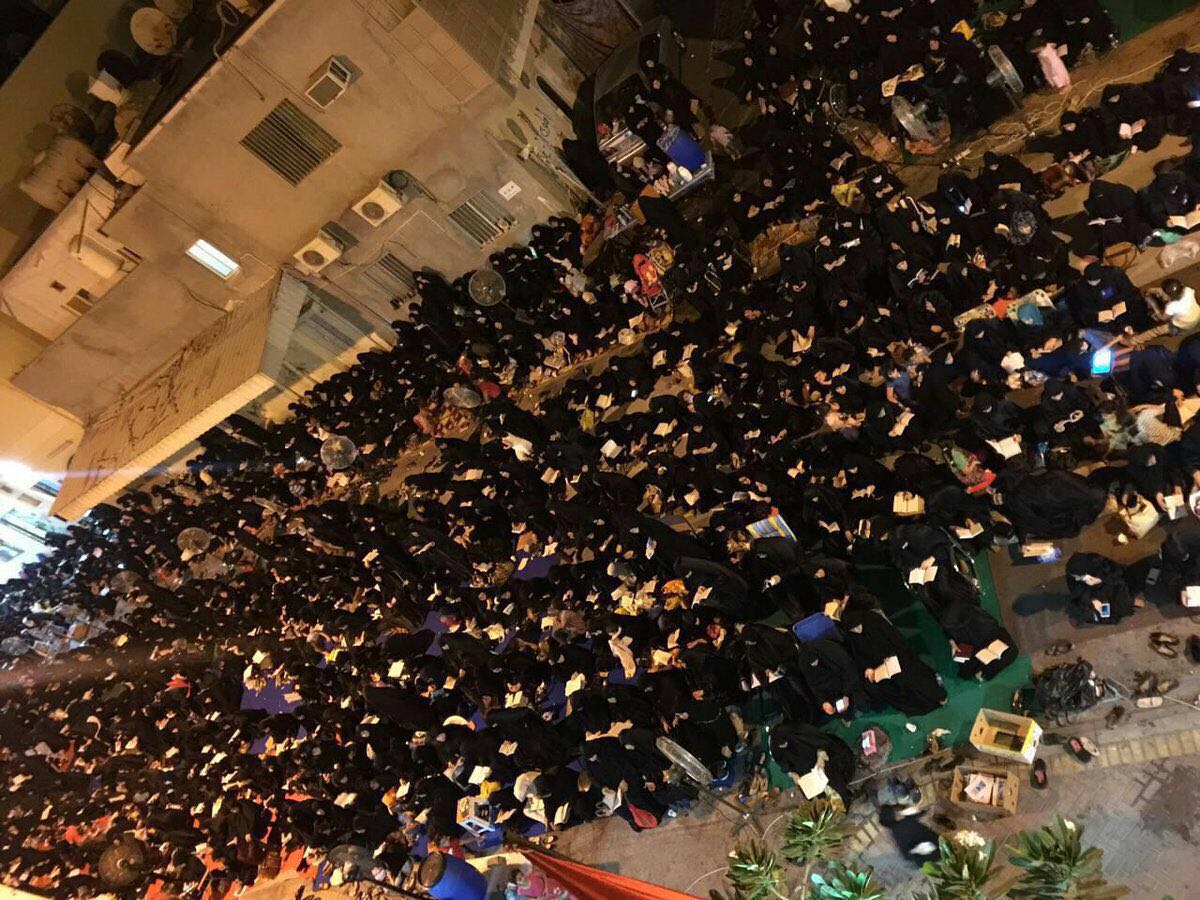On 20 June 2016, thousands of Bahrainis gathered in the streets of Diraz to protest the government’s citizenship revocation of Ayatollah Sheikh Isa Qassim. Over two and a half weeks later, the round-the-clock sit-in continues. Activists from the ground have reported to Americans for Democracy & Human Rights in Bahrain (ADHRB) that internet service is being blocked and security forces have set up checkpoints to control the movement in and out of Diraz. The protests are also a result of broader actions as the past few weeks witnessed a campaign of repression against civil society by the Government of Bahrain.
ADHRB has received reports from Bahrainis on the ground detailing blackouts in internet coverage between approximately 9P.M. and 1A.M. Demonstrators are reporting that the three largest Internet Service Providers (ISPs) in Bahrain, Batelco, Zain, and Viva , do not work during these times. It is believed that all other ISPs similarly go down. This drop in service is not only affecting Diraz, as residents of the neighboring village, Bani Jamra, are experiencing blackouts as well. This is a cause for concern as it isolates those in the town, cutting the demonstrators and residents of Diraz from accessing and disseminating information.
Additionally, Bahraini forces have set up checkpoints that surround Diraz and control the flow of movement in and out of the town. Residents have reported it is relatively easy to leave Diraz, but difficult to re-enter. Sources have also informed ADHRB that Shia Bahrainis, both men and women, are profiled by police and can be held up upon entry. Checkpoints continued during Eid, the three-day holiday marking the end of Ramadan, and security forces restricted non-Diraz residents from entry.
The situation in Diraz is a direct result of the series of repressive actions by the Bahraini government targeting civil society. Within the last few weeks, Bahrain witnessed unrelenting deterioration of civil society. On 30 May, the Government of Bahrain increased the sentence of Sheikh Ali Salman, the Secretary-General of al-Wefaq, from four to nine years on appeal. Bahraini authorities forced human rights activist Zainab al-Khawaja into exile at the beginning of June. On 12 June, the Government of Bahrain imposed travel bans on at least 10 human rights activists and family members of victims of abuse, thereby preventing them from engaging with the international community. On 13 June, the government re-arrested human rights defender Nabeel Rajab, the President of the Bahrain Center for Human Rights, on charges relating to his free expression. On 14 June, the Ministry of Justice suspended Al-Wefaq, the largest opposition party in Bahrain. On 28 June, security forces transferred Nabeel Rajab to the hospital due to unprecedented heart problems following 15 days in solitary confinement. Nabeel shortly thereafter returned to prison where his health continues to deteriorate. Nabeel’s next hearing is scheduled for 12 July and he is facing up to 13 years in prison on charges related to his freedom of expression. The trial for al-Wefaq political opposition bloc is set for Monday 11 July 2016.
During the last two weeks of June, the government has targeted almost a dozen of the country’s top Shia clerics, calling them in for questioning with intimidation. The government gave Sheikh Isa Qassim 72 hours to leave Bahrain following his denaturalization. He remains in Diraz, and individuals fear the government will forcibly move-in to the area to disperse the crowds. Such an act would infringe upon the individuals’ internationally sanctioned right to participate in a peaceful assembly.
The situation in Diraz is a direct result of the series of repressive actions by the Bahraini government targeting civil society. The government’s actions these past few weeks demonstrate it is not committed to political reform and human rights. Bahraini civil society remains strained as the government has imprisoned most prominent activists or forced them into exile. The international community must pressure the government of Bahrain to commit to peaceful reconciliation and to respect the human rights.
Mobashra Tazamal is an Advocacy Fellow at ADHRB





